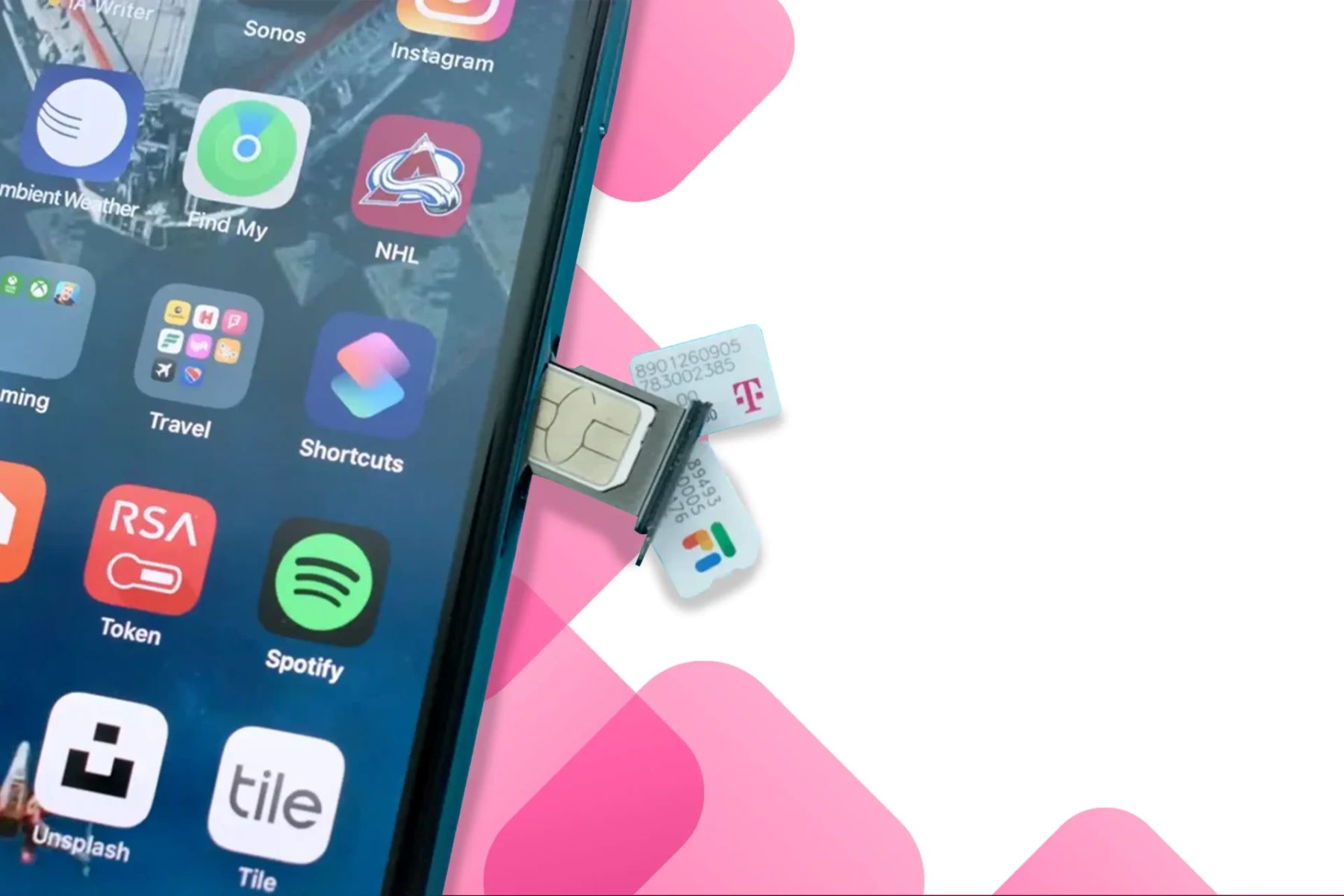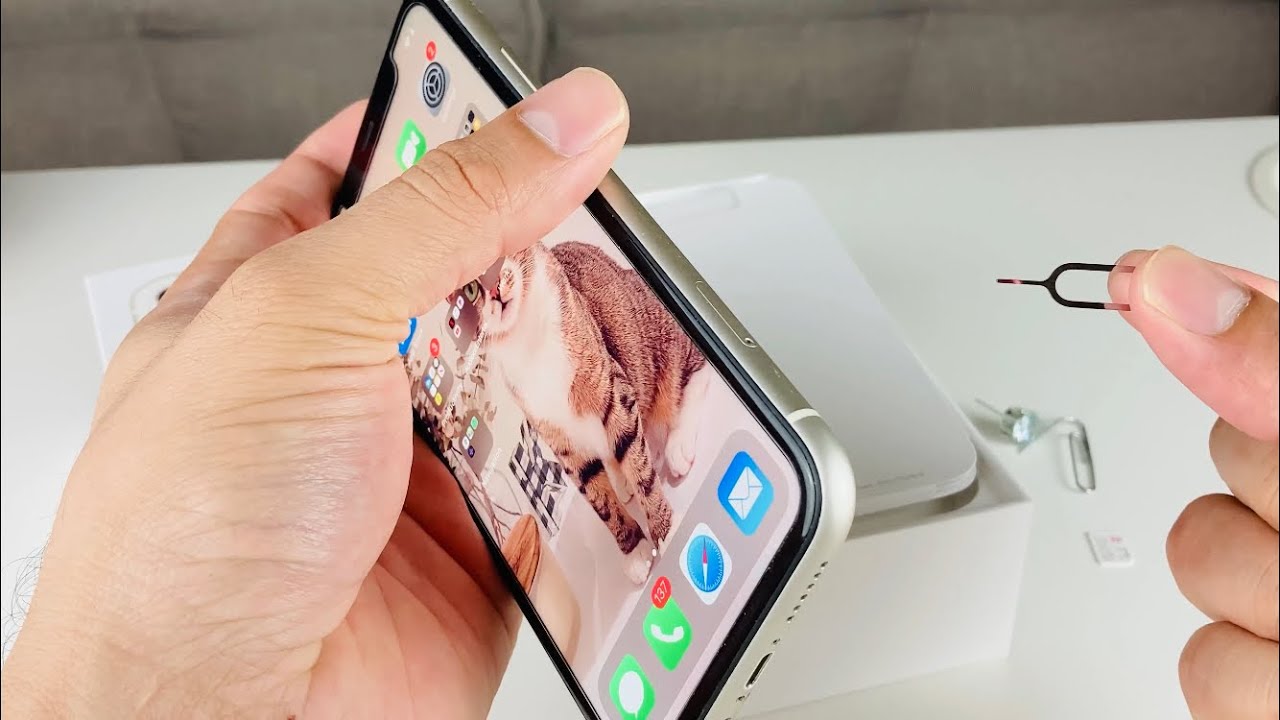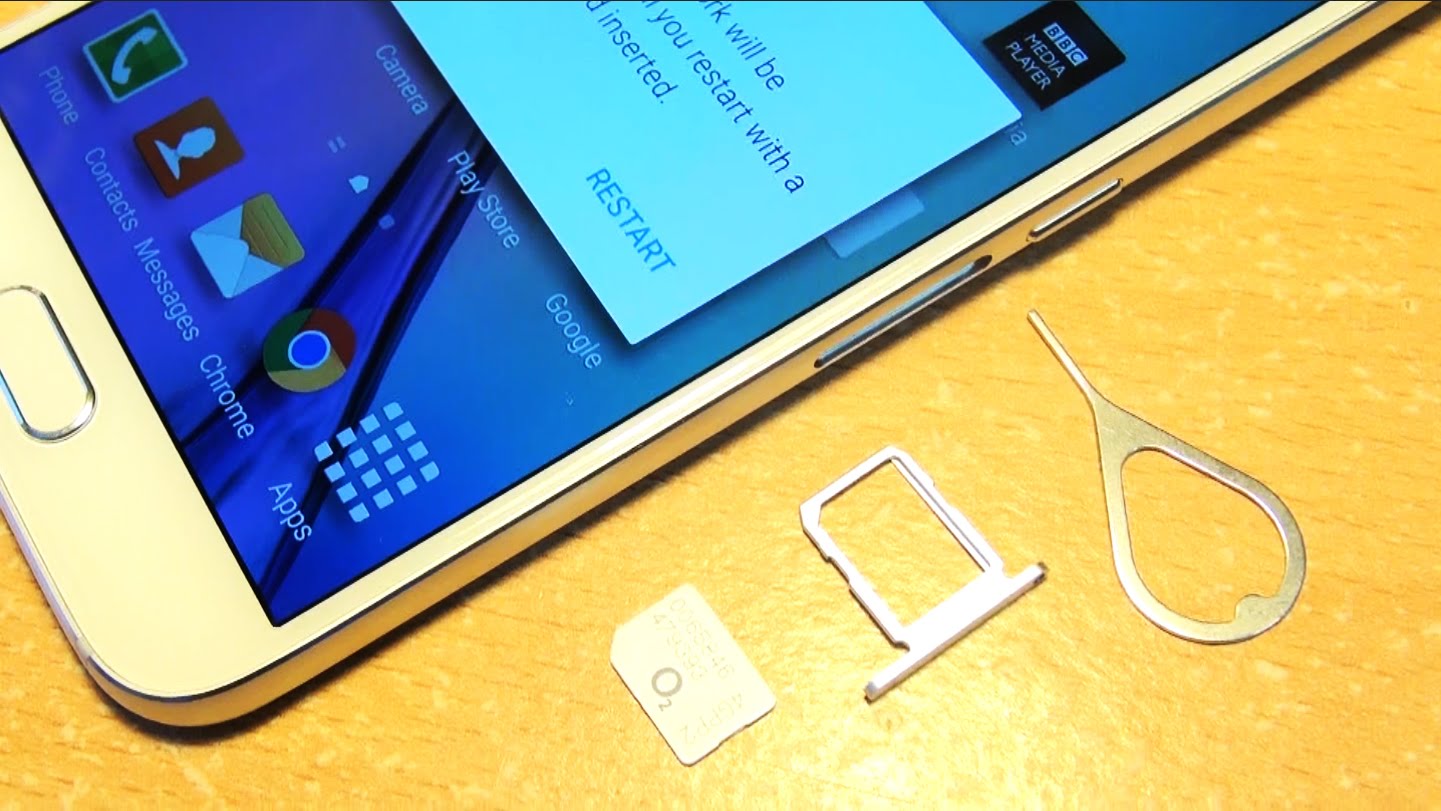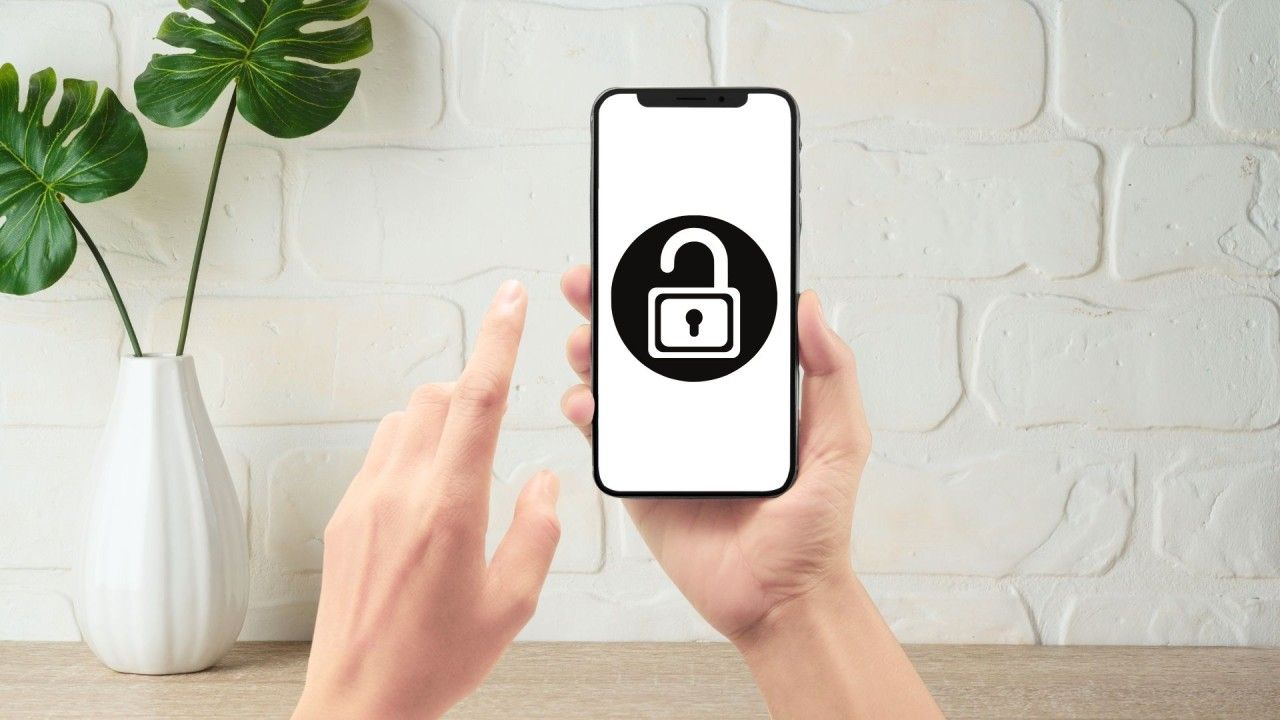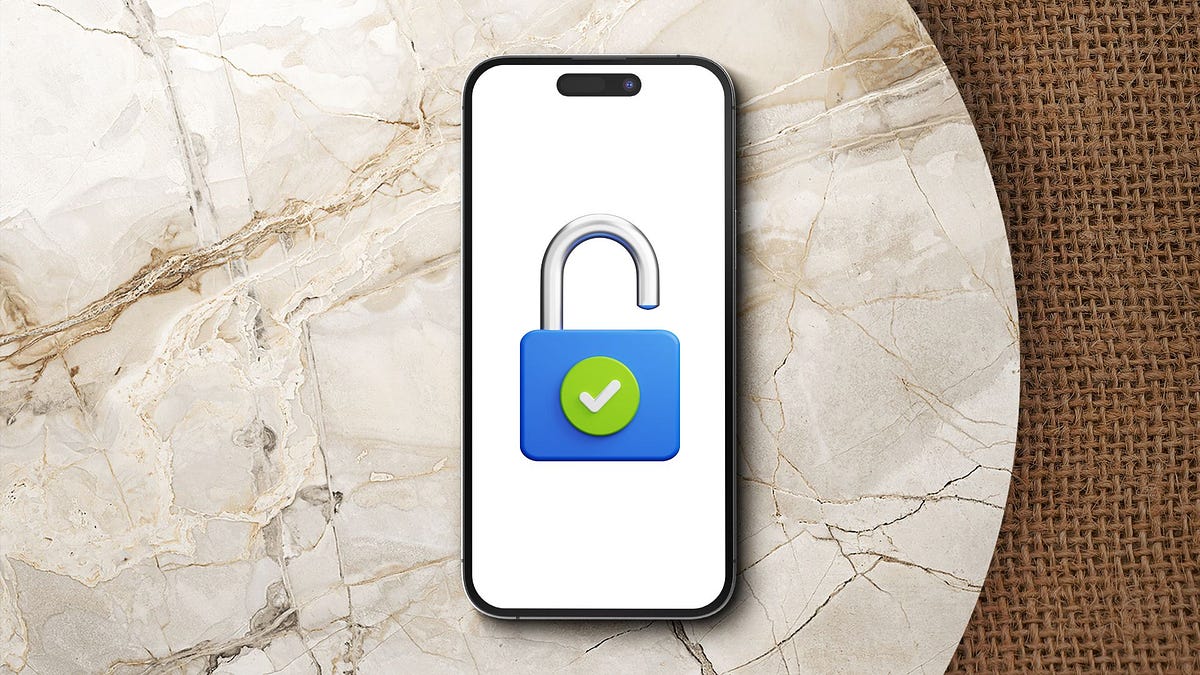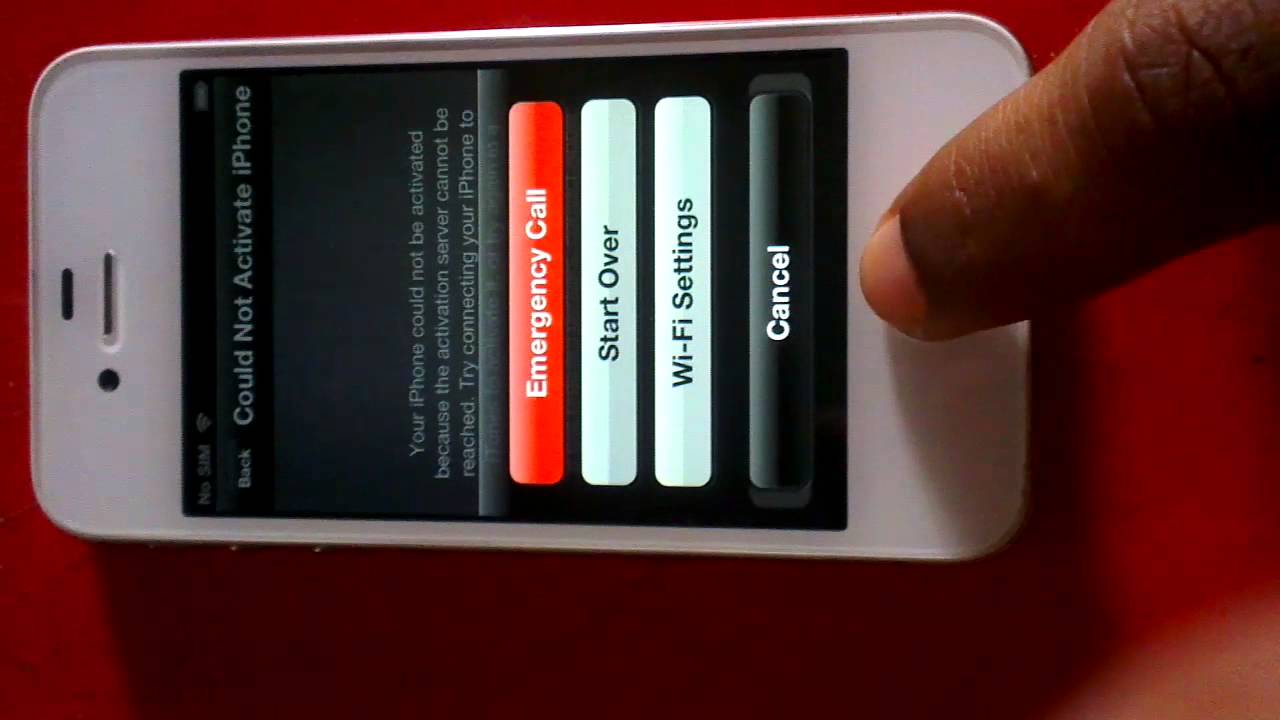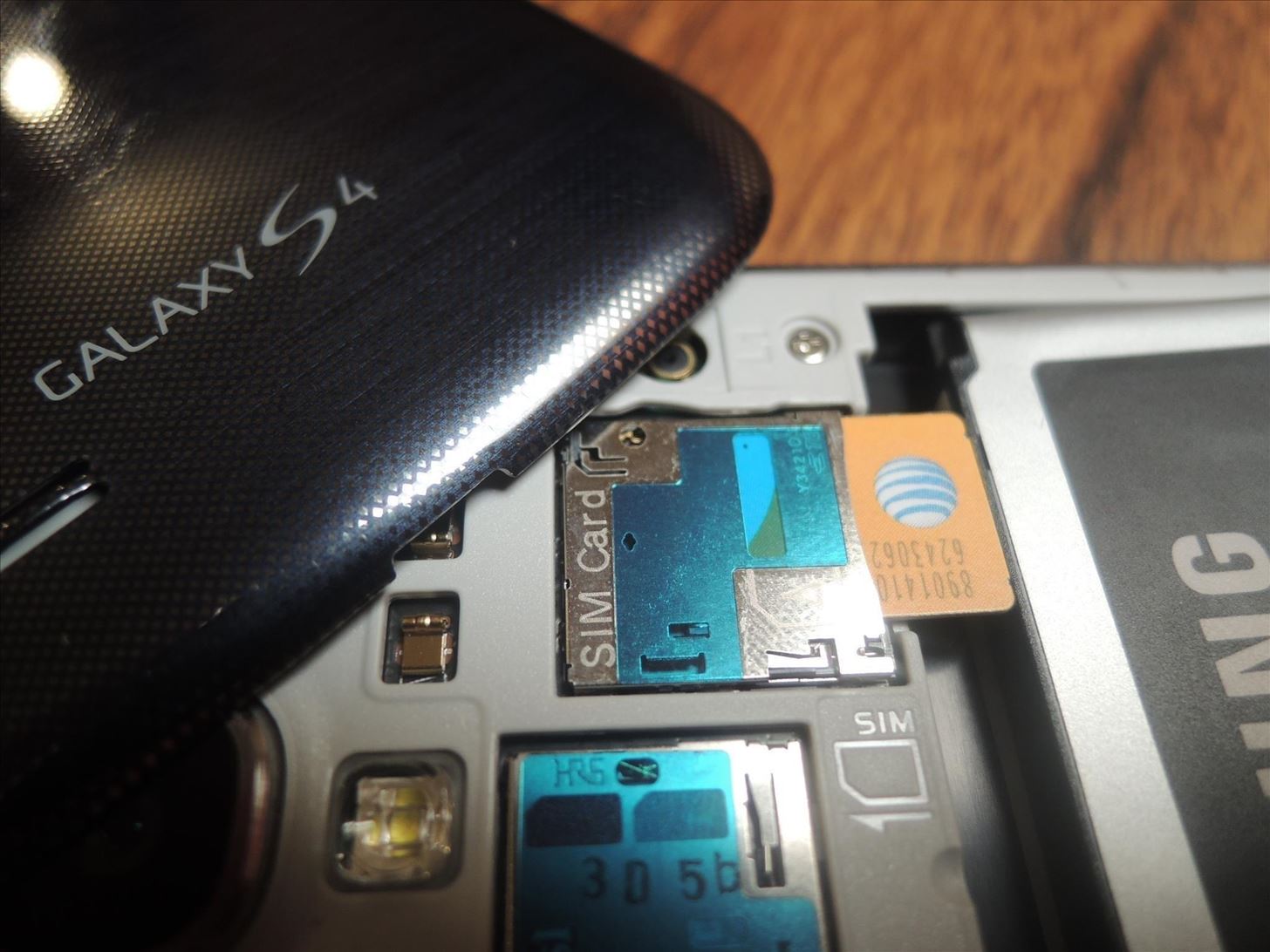Introduction
Unlocking a phone to use any SIM card is a liberating experience that empowers users to break free from carrier restrictions. In today's fast-paced world, where staying connected is essential, the ability to switch to a different network without constraints offers unparalleled flexibility. This comprehensive guide is designed to unravel the intricacies of phone unlocking, shedding light on its benefits, methods, and important considerations.
As we delve into the world of phone unlocking, it's important to recognize the significance of this process in the realm of mobile devices. Whether you're a frequent traveler seeking affordable roaming options or simply aiming to unlock the full potential of your device, understanding the nuances of phone unlocking is crucial.
In the following sections, we will explore the concept of phone locking, the advantages of unlocking your device, and the step-by-step process to determine if your phone is locked. Moreover, we will delve into the various methods of unlocking, including the option of using third-party services. It's essential to highlight the potential risks and considerations associated with unlocking your phone to ensure that you make an informed decision.
By the end of this guide, you will have a comprehensive understanding of phone unlocking and be equipped with the knowledge to navigate this process effectively. Whether you're a tech enthusiast, a frequent traveler, or someone seeking greater freedom in using your mobile device, this guide aims to provide valuable insights and practical guidance to help you unlock your phone with confidence. So, let's embark on this enlightening journey into the world of phone unlocking and discover the endless possibilities that await.
Understanding Phone Locking
Phone locking is a practice implemented by mobile carriers to restrict a device's compatibility with other networks. When a phone is locked, it can only be used with the specific carrier's SIM card, preventing users from easily switching to a different network. This restriction is typically enforced through software codes embedded in the device's firmware, effectively limiting its functionality to a single network provider.
The primary purpose of phone locking is to ensure customer loyalty and the recovery of subsidies provided for the purchase of the device. By restricting the use of the phone to a particular carrier, mobile providers aim to secure a continued revenue stream from their subscribers. This practice has been prevalent in the mobile industry, especially with subsidized or contract-based phones, where carriers offer discounted prices in exchange for a commitment to their services over a specified period.
Phone locking is not limited to a specific type of device and can affect a wide range of mobile phones, including smartphones and feature phones. It is important to note that the locking of a phone is distinct from the concept of SIM locking, which refers to the restriction of a SIM card to a specific device. While phone locking restricts the use of various SIM cards on a single device, SIM locking limits the use of a specific SIM card to a particular phone.
Understanding the implications of phone locking is crucial for mobile device users, as it directly impacts their freedom to choose a network that best suits their needs. By comprehending the mechanisms of phone locking, individuals can make informed decisions regarding the unlocking of their devices, thereby gaining the flexibility to use their phones with any compatible SIM card.
As we continue to explore the intricacies of phone unlocking in the subsequent sections, it is essential to grasp the fundamental concepts and implications of phone locking. This understanding will serve as a cornerstone for navigating the process of unlocking a phone and reaping the benefits of enhanced flexibility and connectivity.
Benefits of Unlocking Your Phone
Unlocking your phone offers a myriad of compelling benefits that significantly enhance your mobile experience. By liberating your device from carrier restrictions, you gain the freedom to seamlessly switch between different networks and capitalize on numerous advantages. Here are the key benefits of unlocking your phone:
-
Global Roaming Without Boundaries: Unlocked phones empower travelers to effortlessly use local SIM cards when visiting international destinations. This eliminates exorbitant roaming charges and enables access to cost-effective voice, text, and data plans tailored to specific regions. Whether you're a frequent globetrotter or planning a one-time international trip, unlocking your phone ensures seamless connectivity without geographical limitations.
-
Financial Flexibility: Unlocking your phone opens the door to competitive pricing and diverse service offerings from various network providers. With the ability to switch to a different carrier, you can capitalize on exclusive deals, promotional packages, and affordable plans that align with your budget and usage patterns. This financial flexibility allows you to make informed choices based on cost-effectiveness and tailored services.
-
Device Resale Value: Unlocked phones command higher resale value in the secondary market. By unlocking your device, you expand its appeal to a broader audience, including individuals seeking unlocked phones for international use or compatibility with their preferred network. This increased demand translates to a higher resale value, providing a tangible financial incentive for unlocking your phone.
-
Freedom to Choose Your Network: Unlocking your phone liberates you from the constraints of a single carrier, enabling you to select a network that best aligns with your preferences and requirements. Whether you prioritize network coverage, data speeds, or customer service, the freedom to choose your preferred network empowers you to optimize your mobile experience based on your unique needs.
-
Access to Software Updates: Unlocked phones often receive software updates and security patches in a timelier manner compared to locked devices. This ensures that you have access to the latest features, performance enhancements, and security improvements, contributing to an optimized and secure user experience.
-
Flexibility for Business Use: For professionals and business travelers, unlocked phones offer unparalleled flexibility in managing multiple SIM cards for different purposes, such as separating personal and business communications or utilizing local numbers for international business engagements.
Unlocking your phone unlocks a world of possibilities, empowering you with flexibility, cost savings, and enhanced connectivity. By embracing the benefits of an unlocked phone, you can maximize the potential of your device and elevate your mobile experience to new heights.
How to Check if Your Phone is Locked
Checking if your phone is locked is a straightforward process that involves a few simple steps to ascertain its current status. By confirming whether your device is locked or unlocked, you can make informed decisions regarding its use with different SIM cards and explore the possibility of unlocking it for enhanced flexibility. Here's a comprehensive guide to help you determine if your phone is locked:
Step 1: Attempt to Use a Different SIM Card
The most direct method to check if your phone is locked is to insert a SIM card from a different carrier into your device. If your phone is locked, it will typically display an error message or prompt for an unlock code when you insert the new SIM card. This indication confirms that your device is restricted to a specific carrier and cannot readily accept SIM cards from other networks.
Step 2: Contact Your Carrier
Another approach to verify the locking status of your phone is to reach out to your current carrier. You can contact their customer support or visit their website to inquire about the locked or unlocked status of your device. By providing your phone's IMEI (International Mobile Equipment Identity) number, which can be obtained by dialing *#06# on your phone or locating it in the device settings, your carrier can confirm whether your phone is locked to their network.
Step 3: Online IMEI Checking Tools
Several online services offer IMEI checking tools that enable you to determine the locking status of your phone. By entering your phone's IMEI number into these tools, you can receive a detailed report indicating whether your device is locked or unlocked. These third-party services provide a convenient way to independently verify the status of your phone and gather essential information for the unlocking process.
Step 4: Consult the Device Documentation
If you have the original documentation or packaging for your phone, it may contain information regarding the locking status of the device. Manufacturers often include details about the phone's compatibility with different networks and carriers, offering insights into whether the device is locked to a specific network at the time of purchase.
By following these steps, you can confidently determine whether your phone is locked and proceed with the necessary measures to unlock it, thereby unlocking a world of possibilities for seamless network flexibility and enhanced connectivity.
How to Unlock Your Phone
Unlocking your phone to accommodate any SIM card involves a systematic process that varies based on the device's make, model, and the carrier's policies. Here's a comprehensive guide to help you navigate the process of unlocking your phone:
Step 1: Contact Your Carrier
Initiate the unlocking process by reaching out to your current carrier. Inquire about their specific requirements and procedures for unlocking a device. Carriers often have distinct policies regarding eligibility criteria, contract status, and the duration of active service required before unlocking a phone. Be prepared to provide essential details, including your phone's IMEI number, to facilitate the unlocking request.
Step 2: Verify Eligibility
Confirm whether your phone meets the eligibility criteria for unlocking set forth by your carrier. This typically includes ensuring that the device is fully paid off, not associated with any fraudulent activity, and compliant with the carrier's unlocking policies. Additionally, if your phone is tied to a contractual agreement, verify if it has fulfilled the stipulated terms to qualify for unlocking.
Step 3: Obtain an Unlock Code or Software
Depending on your phone's make and model, your carrier may provide an unlock code, software, or specific instructions to unlock the device. This code or software is essential for removing the carrier restrictions from your phone, allowing it to accept SIM cards from other networks. Follow the carrier's guidelines to obtain the necessary unlocking credentials or tools.
Step 4: Input the Unlock Code
Once you have acquired the unlock code or software, carefully follow the provided instructions to input the code into your phone. This typically involves inserting a non-accepted SIM card into the device and entering the unlock code when prompted. Upon successful entry of the unlock code, your phone will be liberated from the carrier lock, enabling it to function with SIM cards from any compatible network.
Step 5: Confirm Unlocked Status
After inputting the unlock code, verify the unlocked status of your phone by inserting a SIM card from a different carrier. If the device readily recognizes and connects to the new network without prompting for an unlock code, it indicates that the unlocking process was successful. This confirmation validates that your phone is now unlocked and capable of accommodating various SIM cards.
Step 6: Consider Third-Party Unlocking Services
If your carrier's unlocking process proves to be challenging or if your phone does not meet the eligibility criteria, consider utilizing reputable third-party unlocking services. These services specialize in unlocking phones through alternative methods, providing a viable solution for devices that cannot be unlocked through official carrier channels. Exercise caution and research extensively before engaging third-party services to ensure reliability and legitimacy.
By following these steps, you can effectively navigate the process of unlocking your phone, thereby gaining the freedom to seamlessly switch between different networks and fully leverage the potential of your device. Unlocking your phone unlocks a world of possibilities, empowering you with unparalleled flexibility and connectivity.
Using a Third-Party Unlocking Service
In some cases, unlocking a phone through the carrier's official channels may prove challenging, especially if the device does not meet the eligibility criteria or if the process is subject to prolonged waiting periods. This is where third-party unlocking services offer a viable alternative for individuals seeking to liberate their phones from carrier restrictions.
Third-party unlocking services specialize in unlocking phones through alternative methods, providing a solution for devices that cannot be unlocked through official carrier channels. These services typically operate by leveraging unique techniques and databases to generate unlock codes or software tailored to specific phone models and carriers. By engaging reputable third-party services, individuals can expedite the unlocking process and gain the freedom to use their devices with any compatible SIM card.
When considering third-party unlocking services, it is essential to exercise caution and conduct thorough research to ensure the legitimacy and reliability of the service provider. Reputable third-party services maintain transparency regarding their unlocking methods, pricing structures, and customer support, instilling confidence in their ability to deliver a successful unlocking outcome.
Before engaging a third-party unlocking service, individuals should verify the service provider's credentials, customer reviews, and adherence to industry standards. Additionally, it is advisable to confirm the legality of using third-party unlocking services in the respective region to avoid any potential legal implications.
Upon selecting a trusted third-party unlocking service, individuals can typically initiate the unlocking process by providing essential details about their phone, such as the make, model, IMEI number, and the current carrier. The service provider then utilizes this information to generate the necessary unlock code or software, tailored to the specific device and carrier restrictions.
After receiving the unlock code or software from the third-party service, individuals can follow the provided instructions to input the unlocking credentials into their phones. Upon successful entry, the device becomes liberated from the carrier lock, enabling it to seamlessly accept SIM cards from various networks.
Engaging a reputable third-party unlocking service can be a viable solution for individuals encountering challenges with the carrier's official unlocking process. By leveraging the expertise of these services, individuals can expedite the unlocking of their phones and unlock a world of possibilities, including enhanced network flexibility and connectivity.
Unlocking a phone through a third-party service empowers individuals to fully utilize their devices without constraints, opening doors to seamless network switching and unparalleled freedom in choosing their preferred mobile services.
Risks and Considerations
Unlocking a phone to accommodate any SIM card brings forth a range of potential risks and considerations that individuals should carefully evaluate before proceeding with the unlocking process. While the benefits of unlocking a phone are compelling, it is essential to weigh the associated risks and considerations to make an informed decision.
Potential Risks
Voiding Warranty:
Unlocking a phone through unofficial channels or unauthorized methods may void the manufacturer's warranty. This can leave the device ineligible for warranty-related repairs or support, potentially resulting in additional expenses for any future issues that may arise.
Software Instability:
In some cases, unlocking a phone using unauthorized methods or software may lead to software instability or unexpected behavior. This can manifest as performance issues, system crashes, or compatibility challenges, impacting the overall user experience.
Security Concerns:
Engaging with unverified third-party unlocking services or utilizing unauthorized software may pose security risks, potentially exposing the device to malicious activities or unauthorized access. This can compromise the integrity of personal data and sensitive information stored on the device.
Carrier Implications:
Unlocking a phone without adhering to the carrier's policies or contractual obligations may lead to repercussions from the carrier, including account suspension, financial penalties, or limitations on future services. It is crucial to consider the implications of unlocking a phone without fulfilling contractual obligations.
Important Considerations
Legality and Compliance:
Before unlocking a phone, it is imperative to ascertain the legality of the process in the respective region. Certain jurisdictions have specific regulations governing phone unlocking, and individuals should ensure compliance with applicable laws and regulations.
Carrier Policies:
Understanding the specific unlocking policies of the current carrier is essential. Some carriers have stringent eligibility criteria and processes for unlocking devices, and it is crucial to adhere to their guidelines to avoid potential complications.
Device Compatibility:
Not all phones are universally compatible with all networks, even after unlocking. It is important to verify the compatibility of the unlocked device with the desired network to ensure seamless functionality and access to essential features.
Reputable Service Providers:
When considering third-party unlocking services, individuals should prioritize reputable and established service providers. Thorough research and scrutiny of customer reviews can help in identifying trustworthy service providers, minimizing the risks associated with engaging unreliable services.
By carefully assessing the potential risks and important considerations associated with unlocking a phone, individuals can make informed decisions and navigate the process with awareness and preparedness. It is essential to prioritize the legitimacy, security, and compliance aspects of unlocking a phone to mitigate potential risks and ensure a positive unlocking experience.
Conclusion
In conclusion, the process of unlocking a phone to accommodate any SIM card offers a gateway to unparalleled freedom, flexibility, and connectivity in the realm of mobile devices. By unraveling the complexities of phone locking, understanding the benefits of unlocking, and navigating the methods and considerations associated with this process, individuals can make informed decisions regarding the liberation of their devices from carrier restrictions.
Unlocking a phone transcends the confines of a single network, empowering users to seamlessly switch between different carriers, capitalize on cost-effective roaming options, and access diverse service offerings tailored to their specific needs. The benefits of unlocking, including global roaming without boundaries, financial flexibility, and enhanced device resale value, underscore the transformative impact of liberating a phone from carrier restrictions.
The comprehensive guide has shed light on the fundamental concepts of phone locking, the significance of unlocking, and the step-by-step process to determine the locking status and unlock a phone. It has also emphasized the potential risks and important considerations associated with unlocking, providing individuals with a holistic understanding of this transformative process.
As technology continues to evolve and connectivity becomes increasingly integral to our daily lives, the ability to unlock a phone and leverage its full potential is paramount. Whether it's the freedom to choose a preferred network, the financial savings from competitive service offerings, or the seamless global connectivity while traveling, unlocking a phone unlocks a world of possibilities for users worldwide.
In navigating the journey of unlocking a phone, individuals are encouraged to prioritize legitimacy, compliance, and security, ensuring that the process unfolds with transparency and reliability. Whether engaging with carrier unlocking procedures or reputable third-party services, making informed decisions and adhering to industry best practices is essential for a positive unlocking experience.
Ultimately, unlocking a phone is a transformative endeavor that transcends the limitations imposed by carrier restrictions, providing individuals with the freedom to fully embrace the potential of their devices. By embracing this freedom, users can optimize their mobile experience, capitalize on diverse service offerings, and seamlessly connect with the world, transcending geographical boundaries and unlocking a world of possibilities.







